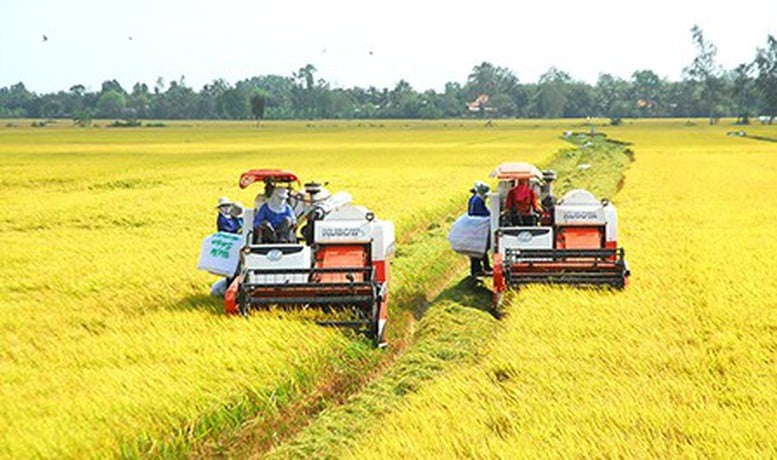
There are as many as 1,055 documents, reflecting the scale and depth of the current legal system in the fields of agriculture and environment.
According to Minister Do Duc Duy, in the context of the whole country strongly implementing the two-tiered local government model, aiming for a streamlined, effective and efficient administrative apparatus, the Ministry of Agriculture and Environment has affirmed its pioneering role in perfecting the mechanism of decentralization, delegation of power and clearly defining the authority between different levels of government to improve management efficiency and serve the people and businesses.
Three foundational decrees
The Ministry of Agriculture and Environment conducted a review of up to 1,055 documents, reflecting the scale and depth of the current legal system in the fields of agriculture and environment. Based on this, the Ministry has compiled, classified, and clearly identified 141 powers of the Government and the Prime Minister , 500 powers under the responsibility of the Minister of Agriculture and Environment, along with more than 1,000 powers and tasks of local governments.
Minister Do Duc Duy stated that this is an important foundation for the ministry to create a management system with clear responsibilities, tasks, and accountability, while eliminating cumbersome, overlapping, and outdated procedures.
Based on those results, the Ministry of Agriculture and Environment submitted to the Government three fundamental decrees: Decree No. 136/2025/ND-CP dated June 12, 2025, stipulating the decentralization and delegation of state management authority in the fields of agriculture and environment; Decree No. 131/2025/ND-CP dated June 12, 2025, stipulating the delineation of authority of two-level local governments in the fields of agriculture and environment; and Decree No. 151/2025/ND-CP dated May 12, 2025, stipulating the delineation of authority of two-level local governments and decentralization and delegation of authority in the field of land.
In addition, the Ministry of Agriculture and Environment is urgently finalizing 18 circulars to specify administrative procedures, documents, and forms for each level of government.
Through the review and revision process, the Ministry of Agriculture and Environment has clearly demonstrated its political determination in proactively creating a legal system suitable for the two-tiered local government organizational model, making a significant contribution to creating conditions for the new apparatus to operate smoothly, efficiently, effectively, and in compliance with the law, while remaining close to the people.
This is the necessary foundation to ensure the success of the organizational transformation of the government apparatus in the fields of agriculture and environment in particular, and the state management system in general, in the new phase, Minister Do Duc Duy emphasized.
Regarding the principles of decentralization, delegation of power, and delineation of authority in the fields of agriculture and environment, Minister Do Duc Duy stated that the Ministry of Agriculture and Environment is building decentralization based on four key principles. Firstly, decentralization, delegation of power, and delineation of authority are organized in a way that clearly distinguishes between the central government's functions of policy making and strategic planning and the local authorities' power to implement specific tasks.
Secondly, the decentralization, delegation, and delineation of authority in the fields of agriculture and environment are designed to be synchronized with related management areas such as investment, construction, population, finance, and budget... in order to ensure consistency in the legal system and avoid creating gaps in authority between sectors and levels.
Thirdly, the delegation of authority and the delineation of responsibilities must ensure feasibility and effectiveness in implementation. The transfer of authority must always be linked to specific implementation conditions regarding human resources, budget, technical infrastructure, and databases at each level. It is absolutely crucial to avoid "formal decentralization," where authority is delegated but still requires consultation or tasks are assigned without granting full authority or sufficient resources, leaving localities confused and unprepared.
Fourth, clearly define the authority between the People's Committee and the Chairperson of the People's Committee at all levels, shifting from general authority to specific authority for the implementation of administrative procedures. This is a transformation in the method of operation, aiming to strengthen the responsibility of the head of the agency, shorten the processing time of administrative procedures, reduce compliance costs, and at the same time create transparency and clarity in the assignment and evaluation of implementation efficiency, thereby creating the greatest convenience for citizens and businesses in the process of carrying out administrative procedures and accessing public services.
According to Minister Do Duc Duy, Decree No. 136/2025/ND-CP and Decree No. 151/2025/ND-CP have delegated 68 powers and tasks from the Government to the Minister of Agriculture and Environment; 48 powers and tasks from the Prime Minister to the Minister of Agriculture and Environment; 17 powers and tasks from the Government and the Prime Minister to local governments; 166 powers and tasks from the Minister of Agriculture and Environment to local governments; and 11 powers and tasks from provincial governments to commune governments.
Decree No. 136/2025/ND-CP stipulates the procedures for implementing delegated powers and tasks, specifically 131 administrative procedures with 111 prescribed procedures. The Decree has reduced the processing time for administrative procedures by 987 out of 3,175 days, equivalent to 31.08%.
The Ministry of Agriculture and Environment plans to issue 18 circulars amending and supplementing specialized circulars, effective from July 1, 2025; aiming to reduce the time, required documents, and compliance costs of administrative procedures by over 30%.
Decree No. 131/2025/ND-CP and Decree No. 151/2025/ND-CP aim to clearly define the responsibilities between the provincial and commune levels in the absence of district-level organizations. Specifically, it transfers 192 powers and responsibilities from the district level to the new commune-level governments, and a portion to the provincial level. In particular, 14 powers and responsibilities are transferred from the district level to the provincial level; and 178 powers and responsibilities are transferred from the district level to the commune level.
Decree No. 131/2025/ND-CP redesigned the procedures for implementing 33 administrative procedures corresponding to the assigned tasks, reducing the processing time for these 33 procedures by 492/1,039 days; this represents a 47.35% reduction in the processing time for administrative procedures.
Decree No. 151/2025/ND-CP redesigned the procedures for implementing 55 administrative procedures and reduced the processing time by 165 days. Specifically, this decree eliminated 11 out of 66 (equivalent to 16.67%) administrative procedures related to land; eliminated 8 out of 24 conditions for providing services in the land sector (equivalent to 33.33%); eliminated 8 types of documents, such as the application for initial land use certificates, removing the confirmation document from the competent authority regarding the eligibility of housing and structures; eliminated 29 out of 73 forms, and removed some information fields in some forms/templates related to the requirement to fully utilize the land database and create the most favorable conditions for citizens…
According to Minister Do Duc Duy, all these transfers are accompanied by a clear roadmap, specific implementation conditions, and appropriate inspection and supervision mechanisms. To ensure that legal regulations are truly put into practice, the Ministry of Agriculture and Environment focuses on detailing the procedures for exercising delegated authority. From documents and forms to processing deadlines, every step is standardized and transparent. The application of digital technology is being promoted in receiving, processing, and delivering results, helping to shorten processing times, minimize corruption, and create optimal conditions for citizens and businesses.
According to Minister Do Duc Duy, this is an important, strategic step towards building a modern, streamlined, effective, efficient, people-oriented, and better-serving administrative system. Decentralization and delegation of power are not only objective requirements of the reform process, but also a breakthrough solution to unleash resources and maximize the potential and advantages of each locality.
Do Huong
Source: https://baochinhphu.vn/nganh-nong-nghiep-va-moi-truong-phan-cap-phan-quyen-de-phat-huy-toi-da-tiem-nang-102250615153949447.htm


![[Photo] Closing Ceremony of the 10th Session of the 15th National Assembly](/_next/image?url=https%3A%2F%2Fvphoto.vietnam.vn%2Fthumb%2F1200x675%2Fvietnam%2Fresource%2FIMAGE%2F2025%2F12%2F11%2F1765448959967_image-1437-jpg.webp&w=3840&q=75)
![[Photo] Prime Minister Pham Minh Chinh holds a phone call with the CEO of Russia's Rosatom Corporation.](/_next/image?url=https%3A%2F%2Fvphoto.vietnam.vn%2Fthumb%2F1200x675%2Fvietnam%2Fresource%2FIMAGE%2F2025%2F12%2F11%2F1765464552365_dsc-5295-jpg.webp&w=3840&q=75)






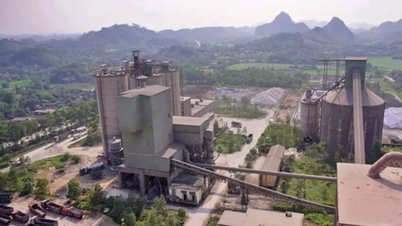
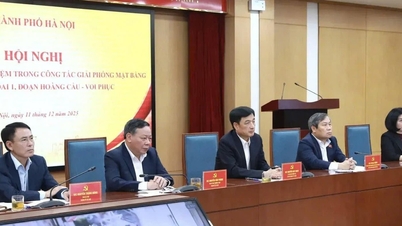



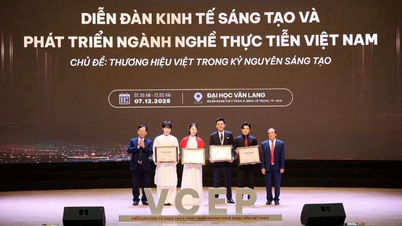







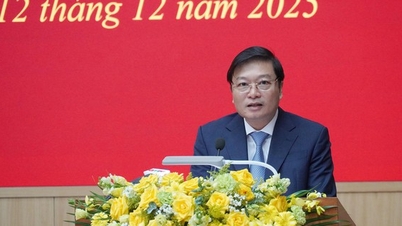
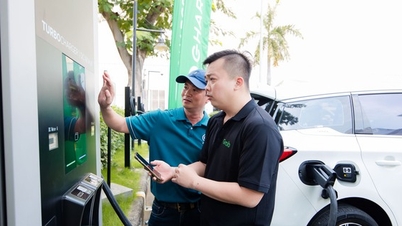
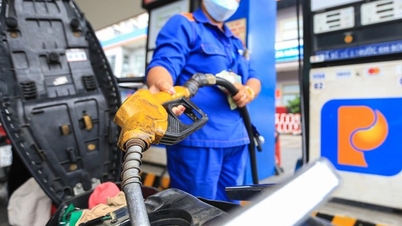
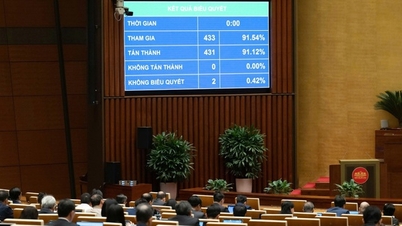
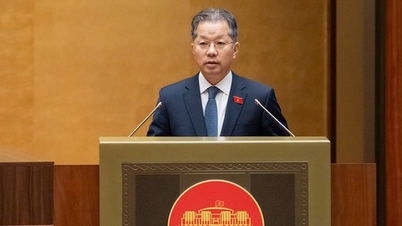





















![[OFFICIAL] MISA GROUP ANNOUNCES ITS PIONEERING BRAND POSITIONING IN BUILDING AGENTIC AI FOR BUSINESSES, HOUSEHOLDS, AND THE GOVERNMENT](https://vphoto.vietnam.vn/thumb/402x226/vietnam/resource/IMAGE/2025/12/11/1765444754256_agentic-ai_postfb-scaled.png)





















































Comment (0)